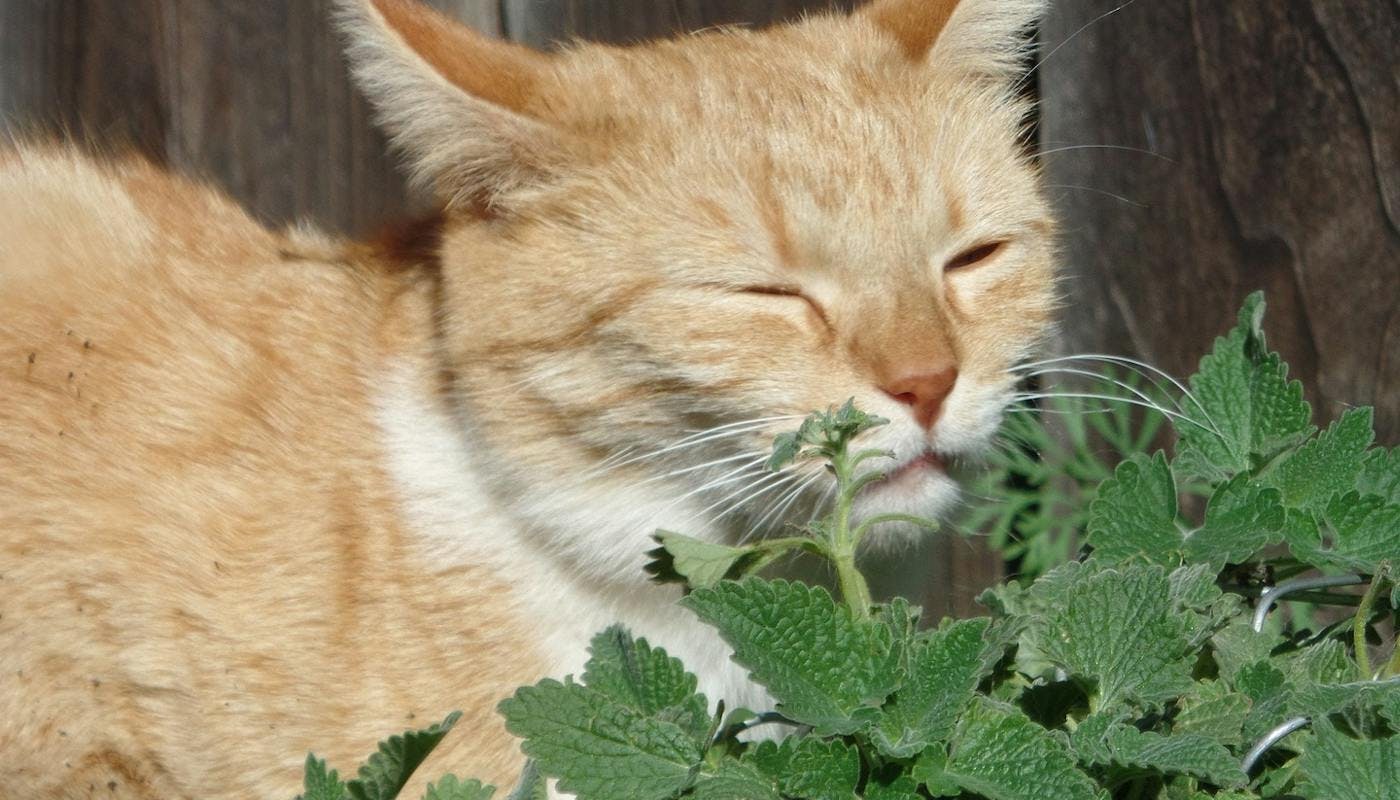Is Catnip Bad for Dogs?
Stay calm! If your dog just swallowed some catnip, the short answer is: not usually. According to the ASPCAhttps://www.aspca.org/pet-care/animal-poison-control/toxic-and-non-toxic-plants/catnip catnip is generally safe, but a small proportion of cats and dogs will develop a reaction like vomiting or diarrhoea. Watch your dog while we catch you up on the key facts…
What is Catnip?
Catnip is a garden herb with a magic ingredient – nepetalactone. Some experts think this compound is similar to the pheromone produced by a female cat on heat. Others say that the essential oil reaches the ‘happy’ receptors inside a cat’s brain.
Whatever the cause, the scent of catnip produces a euphoric reaction for many cats. They might roll around, jump, purr or meow, and rub their heads on the floor. The effect lasts for around 10-15 minutes. After that, you’ll probably have a very relaxed cat!
Catnip is thought to affect more than half of adult cats; those without a certain gene, and older cats, are less likely to go wild at the scent.
Secret Sources of Catnip
It’s worth noting that, while you may have bought catnip in dried form at the pet shop, it could already be present in other places around the home.
For instance, it could be growing in your yard (it looks like mint). It’s also stuffed inside some cat toys. If your dog loves stealing the cat’s stuff, that might explain their bad stomach.
Do Dogs Like Catnip Too?
The sedative effect of catnip also works on some dogs. They won’t frolic and purr like a cat – but they might become calmer. Catnip is a renowned natural remedy which can support health issues like poor sleep, insect bites and anxiety.
How Can Catnip Help Dogs?
Catnip (also called catmint or catwort) is a green herb which grows all over Europe, North America and New Zealand. From the mint family, catnip has been used for medical purposes for many years.
It contains vitamins C, E, and magnesium. But its primary active ingredient is nepetalactone. This is a natural insect repellent which can help in the fight against fleas (- it may even be more effective than DEEThttps://www.sciencenews.org/article/how-catnip-plant-repels-insects-mosquitoes-chemical-receptor). It’s also naturally sedative – that’s why catnip is sometimes recommended by vets, particularly for dogs who get stressed by travel or visitors.
TIP: Grow your own Catmint. It’s easy to start from seed in pots: pick a well-drained, sunny spot. Let your pets explore the patch and, later in the season, dry some leaves to keep your pets happy!
How Much Catnip Should You Give Your Dog?
Like any new food, catnip should be introduced with extreme caution. Talk to your vet before introducing it. Begin with a very small amount (1/4 tsp) sprinkled over your dog’s dinner and monitor them closely to see how they behave. As we mentioned above, some dogs will develop gastrointestinal upset after eating catnip.
But if your dog responds positively to catnip, and you think it’s worth continuing, take advice on the recommended dose and frequency. Catnip contains essential oils and should therefore be given with care.
If you’re looking for something to help with an anxious dog or just calm them down in stressful situations, we’d be remiss if we didn’t point you in the direction of Harmony/products/harmony.This is our vet approved, scientifically backed dog supplement especially designed to help relieve anxiety in dogs.
